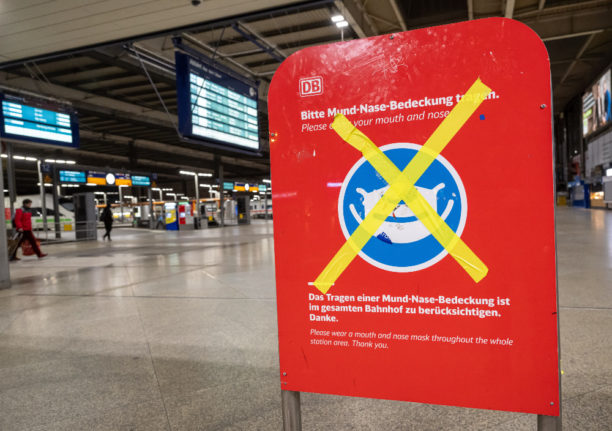Söder said that Germany could make Telegram inaccessible via geo-blocking, a method of making some online services unavailable in specific regions.
“In other parts of the world, Telegram may be a channel for democracy. In our country, it’s a channel for insecurity and fake news,” he said.
Claiming that Telegram was “by some distance” the platform moist used to spread hate, he expressed the concern that it could be used to form violent resistance groups against lockdown measures.
“We can’t allow for the formation of a ‘Covid RAF’ for who violence is acceptable,” he said referring to the Red Army Faction, a left-wing cell that terrorised Germany in the 1970s.
“Closed groups of conspiracy theorists are emerging on platforms like Telegram. Whenever more absurd fake news is sold there as truths, there is a danger that individuals will develop a supposed moral right of resistance from it.”
The German government has been putting pressure on Telegram to close down channels that spread conspiracy theories or where unregistered protests against Covid rules are organised.
Last week, the company shut down over 60 such channels, including one belonging to the vegan chef Attila Hildmann, who has gained notoriety for his extremist views during the pandemic.
“Telegram must no longer be an accelerant for right-wing extremists, conspiracy theorists and other agitators. Death threats and other dangerous messages of hate must be deleted and have legal consequences,” interior minister Nancy Faeser said last week in comments made to the Süddeutsche Zeitung.



 Please whitelist us to continue reading.
Please whitelist us to continue reading.
A couple of years ago Russia had tried to block Telegram. First days it led to almost full outage of AWS, Microsoft Azure and Google Cloud in the country, they were completely unaccessible. Telegram kept working. And in Russia those blocking mechanisms are in development for a decade at least. I’m really concerned Germany would succeed without causing major damage to innocent users and businesses.
Who gets to decide whats dangerous? What is hate really?
No speach should be sensored. No matter how vulgar.
Calls for someone’s death or harm to be brought against a person, or a group. This is illegal and should be punished, as is the law.
By banning fringe groups you give them legitimacy in a sense. Especially around covid times. Where they talk of government censorship. They are just standing there now saying. “See, we told you. “
Söder and his mixed metaphores!
Agree totally with Flynn.
Local very peaceful weekly demo against Covid ‘practices and claims’ has been met by aggressive, abusive and ugly pro-covid groups.